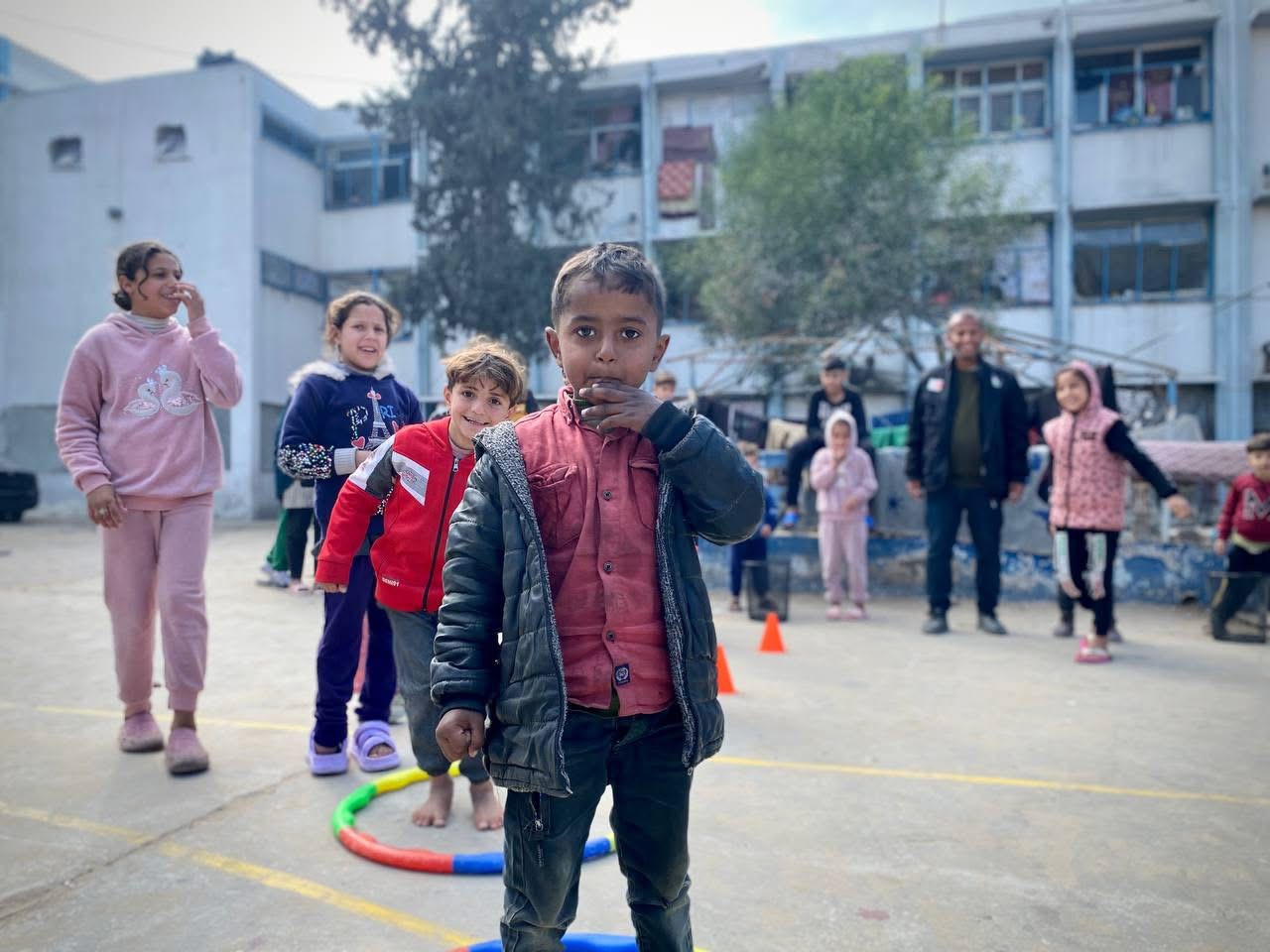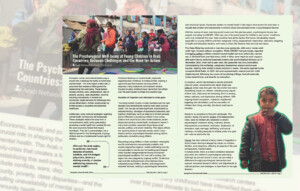We Communicate For Happy Children
 The Psychological Well-being of Young Children in Arab Countries: Between Challenges and the Need for Action
The Psychological Well-being of Young Children in Arab Countries: Between Challenges and the Need for Action 
30 June 2025
The article below is featured in the Moving Minds Alliance’s bi-monthly bulletin, which focuses on Mental Health and Psychosocial Support (MHPSS)—the designated theme for June.

Economic, social, and political factors play a crucial role in shaping the reality of community mental health. The Arab region is filled with a poly-crisis that creates a fertile ground for destabilizing this well-being. These factors include conflicts, wars, displacement, lack of security, poverty, class disparities—and the resulting unavailability of mental and community health services for individuals who cannot afford them—further compounded by limited access to education and essential healthcare.
Additionally, many national strategies regarding mental health services are still inadequate. These strategies detach the issue from a comprehensive public policy perspective, separating mental health from societal life and the socio-economic factors that impact individuals. They fail to acknowledge it as a vital component in the development of young children and as a fundamental human right for children.
Although the Arab region, in particular, has faced decades of turmoil, conflicts, and full-fledged poly-crisis, there is a striking scarcity of studies addressing community mental health. Published literature on mental health, especially regarding early childhood, is notably limited, creating a significant gap that impedes recovery efforts. In response, many institutions and research centers focused on early childhood have intensified their efforts over the past decade to bridge this research gap.
Decades of tragedies and attempts to close gaps
The rising number of wars in Arab countries over the past decades has intensified the need to meet basic survival needs. Yet, the gap remains significant, exacerbated by reduced funding, shortages of specialized personnel, and logistical challenges, such as reliance on limited samples due to difficulties in accessing children in war zones. Cultural and social factors also create obstacles, as the stigma surrounding mental health continues to prevail in many Arab societies, especially those facing acute security, political, and social instability. This stigma affects the reporting levels of traumatic events, which in turn leads to severe psychological disorders among victims, particularly vulnerable young children.
Discussing young children in Arab countries—among the world’s most war-torn, economically unstable, and socially fragmented regions—entails addressing not only one generation’s trauma and its resulting psychological crises but also intergenerational trauma and severe psychological conditions. For over half a century, this region has been plagued by ongoing conflict. Continuous wars and dire socioeconomic circumstances have subjected young children, families, and caregivers to repeated traumas, leading to psychological, behavioral, and emotional issues. Numerous studies on mental health in the region have shown for more than a decade that children and adolescents in conflict zones face elevated levels of psychological trauma.
With the number of wars reaching record levels over the past two years, psychological trauma has surged. According to UNICEF, 2024 was one of the worst years for children in war zones. Conditions have only worsened this year. Arab countries face all the factors that have a devastating impact, especially on young children and their caregivers: killing, displacement, destruction, starvation, targeting of health and education sectors, and more; in short, the threat to their survival and future.
The Gaza Strip has endured a near-two-year genocide, with every human and child right violated without exception. While UNICEF had previously reported that half a million children needed mental health services before the current war, it declared last year that every child in Gaza now requires such support, with each having endured traumatic events and psychological distress as of November 2024. Over half a year later, the genocide has only intensified. Compounding the suffering, caregivers themselves endure continuous trauma, limiting their ability to meet children’s needs.
The same applies to the occupied West Bank. In 2023, the area experienced a record year for child displacement, following two years of escalating killings, forced removals, home demolitions, and attacks on education.
In Lebanon, which has endured a severe economic crisis for years, worsened by the latest Israeli war, UNICEF noted early this year that the conflict has had a devastating impact on children, affecting every aspect of their lives. Data show an increasing trend in anxiety, stress, sadness, and depression among children. With ongoing Israeli occupation, violations, heightened targeting and intimidation, and the prevention of children from living normally, this trend continues to escalate.
Sudan is no exception to this grim landscape. The country, facing the world’s largest child displacement crisis, sees its children are subjected to severe psychological violations: killing, maiming, famine, displacement, recruitment, child labor, destruction of education, early marriage, trafficking, and sexual violence—including assaults on infants under one year old—with no end to the list.
Yemen has also endured a heavy share of tragedies in recent years, leaving a staggering impact on children, families, and caregivers, affecting all aspects of life and, consequently, mental health.
In simple terms, there is a direct correlation between poly-crisis and children’s psychological well-being. Although we cannot control a crisis, we can make a difference through psychological intervention and support, increased research efforts, and adjustments to national policies and strategies to steer them in the right direction.
